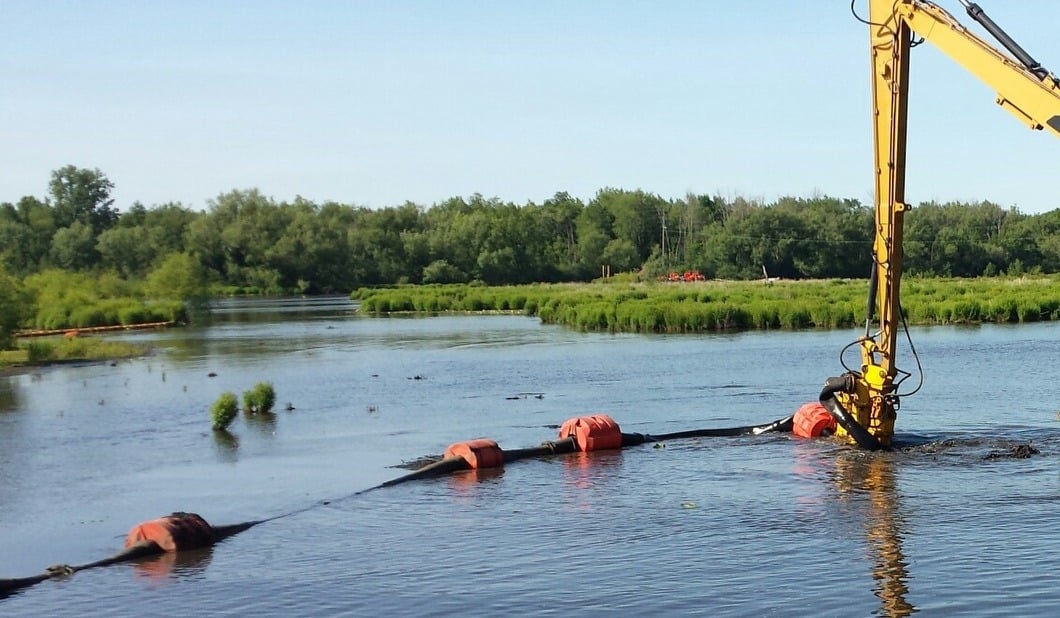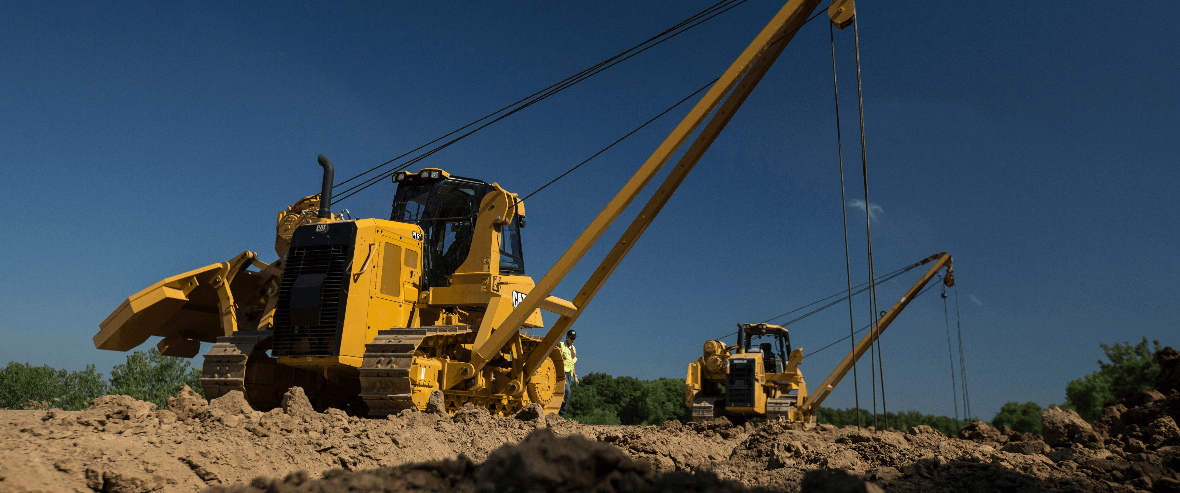Superior Rentals near me: cost guide for contractors
A Comprehensive Overview to the Various Types of Oil Field Equipment and Pipeline Equipment Available
The oil and gas market depends greatly on customized tools for reliable removal and transportation. Various kinds of machinery, from drilling rigs to tank, play crucial functions in this intricate procedure. Each item of equipment offers distinct functions that add to general operational success. Understanding these elements is essential for any individual associated with the industry. As the sector progresses, so as well do the technologies that sustain it. What advancements are on the perspective?

Drilling Rigs: The Backbone of Oil Expedition
Drilling rigs act as the crucial machinery in the domain of oil exploration, allowing business to access hydrocarbon reserves hidden deep underneath the Planet's surface area. These rigs can be found in different kinds, consisting of land rigs, offshore rigs, and mobile systems, each designed to run in particular settings. Furnished with sophisticated technology, drilling rigs can permeate geological developments with precision, making certain efficient resource removal. The structural stability and functional capabilities of these rigs are important, as they must stand up to severe conditions and considerable stress. In addition, the choice of a boring gear impacts the general project price and timeline, making it an important consideration for oil business looking for to maximize their expedition initiatives and optimize performance in their operations.
Pumps: Crucial for Liquid Activity
In the oil removal procedure, the duty of pumps is significant, assisting in the motion of fluids throughout different stages of production. Pumps are vital for delivering petroleum, water, and various other liquids from underground tanks to the surface and afterwards through pipelines to refineries. They are available in different types, consisting of centrifugal, favorable displacement, and submersible pumps, each offering specific objectives based on the liquid attributes and operational needs. Centrifugal pumps are commonly made use of for their effectiveness in high-flow applications, while positive variation pumps stand out in dealing with viscous liquids. The choice of pump influences overall efficiency, functional safety, and upkeep prices. Appropriate choice and maintenance of pumps are vital for enhancing manufacturing and decreasing downtime in oil area operations.
Valves: Managing Circulation and Pressure

Valves play an important function in handling the flow and stress of liquids within oil fields and pipes. Numerous kinds of shutoffs serve unique applications, each made to satisfy certain features essential for effective operation - Superior Rentals midland. Recognizing the characteristics and usages of these shutoffs is essential for enhancing system efficiency and safety and security
Kinds of Valves
Vital components in oil area operations, shutoffs play a critical duty in regulating the circulation and pressure of fluids within pipes and devices. Numerous types of valves are used to fulfill the diverse needs of oil and gas manufacturing. Usual types consist of gate shutoffs, which provide a straight-line circulation and minimal pressure decline; world valves, understood for their throttling capabilities; and round valves, acknowledged for their fast on/off control. Furthermore, check shutoffs protect against heartburn, while butterfly shutoffs use a lightweight service for controling circulation. Each shutoff kind is created with details products and configurations to withstand the extreme conditions frequently found in oil fields, making certain reliability and performance in procedures. Comprehending these types is critical for effective system management.
Valve Applications and Features
While various kinds of valves serve unique purposes, their main applications revolve around controlling circulation and stress within oil and gas systems. Shutoffs such as entrance, globe, and round valves manage liquid motion, making sure peak efficiency and click for more info safety. Gateway shutoffs are commonly utilized for on/off control, giving very little circulation resistance. World valves, on the other hand, offer exact flow policy, making them suitable for strangling applications. Ball valves are preferred for their quick operation and tight securing capacities. Furthermore, pressure alleviation valves are vital for stopping system overpressure, securing tools integrity. On the whole, the suitable option and application of shutoffs enhance operational effectiveness, making certain the trustworthy transport of oil and gas via pipes and handling centers.
Compressors: Enhancing Gas Transportation
Compressors play a vital function in the reliable transportation of natural gas, making certain that it relocates efficiently through pipes over cross countries. These devices enhance the pressure of gas, permitting it to get rid of friction and altitude adjustments within the pipeline system. Additionally, compressors assist in the balancing of supply and demand, suiting variations in usage and production prices. Different sorts of compressors are utilized in the industry, including centrifugal, reciprocating, and rotating screw compressors, each offering unique advantages based on the functional demands. Routine upkeep of these compressors is necessary to make best use of performance and decrease downtime, eventually adding to a dependable gas transport network. Their vital feature underscores the relevance of compressors in the general oil and gas framework.
Storage Tanks: Safe and Effective Liquid Monitoring
Reliable transport of natural gas relies on numerous supporting systems, among which is the proper administration of storage space containers. These storage tanks play an essential function in securely consisting of liquids, pipeline cleaning pigs ensuring that functional performance is kept while reducing ecological threats. Created from long lasting products, they are designed to withstand high stress and harsh elements. Effectively sized and purposefully located, tank gas line repair service near me facilitate the smooth flow of all-natural gas and other fluids, protecting against traffic jams in supply chains. Normal maintenance and monitoring are imperative to find leakages or architectural problems, promoting security and conformity with regulative criteria. Eventually, the reliable administration of storage space tanks is important for the general honesty and reliability of the oil and gas industry's fluid handling systems.
Pipeline Equipments: Facilities for Transportation
Pipeline systems work as the backbone of the oil and gas sector, assisting in the reliable transport of hydrocarbons over vast ranges. These systems consist of numerous components, consisting of pipes, valves, pumps, and compressors, all carefully made to ensure smooth flow. The products made use of in pipeline construction, commonly steel or high-density polyethylene, are picked for resilience and resistance to rust. Pipeline networks can extend throughout land and water, connecting production sites to refineries and distribution facilities. Furthermore, advanced innovation enables real-time monitoring of circulation prices and stress degrees, improving functional performance. The critical placement of these pipes decreases ecological influence while optimizing source availability, therefore playing an essential duty in meeting power needs internationally.
Safety And Security Equipment: Guaranteeing Worker and Environmental Management
The procedure of pipeline systems, while vital for power transport, also presents substantial security obstacles for employees and the setting. Safety and security devices plays a substantial duty in mitigating these risks. Personal safety tools (PPE) such as headgears, handwear covers, and non-slip footwear safeguards workers from physical dangers. Furthermore, gas discovery systems keep an eye on for leakages, making certain that hazardous compounds do not present a risk to workers or the bordering ecosystem. Emergency situation closure systems are imperative for rapidly stopping operations during a situation, protecting against potential catastrophes. Spill containment products, including absorbents and barriers, are basic for reducing ecological effect. In general, purchasing all-inclusive safety equipment is essential for keeping functional stability and securing both workers and the atmosphere in the oil and gas field.

Frequently Asked Concerns
Just how Do I Select the Right Oil Field Equipment for My Project?
Selecting the right oil field tools includes evaluating task requirements, budget restrictions, and functional needs. Think about aspects such as equipment integrity, compatibility with existing systems, and the provider's reputation to assure peak efficiency and safety and security.
What Are the Maintenance Requirements for Oil Field Equipment?
Upkeep needs for oil area tools include routine evaluations, lubrication, and timely repair work. Operators ought to also follow supplier standards, display efficiency metrics, and assurance compliance with safety guidelines to enhance durability and effectiveness.

How Can I Make Certain Conformity With Environmental Laws?
To ensure compliance with ecological guidelines, business need to carry out normal audits, implement ideal techniques, buy training, keep correct documents, and remain updated on regulation (Superior rentals squeeze tools). Collaboration with environmental firms can also improve adherence to regulations
What Is the Ordinary Lifespan of Pipeline Equipment?
The average life-span of pipeline equipment generally ranges from 20 to half a century, relying on elements such as worldly high quality, ecological conditions, and upkeep techniques. Regular evaluations can substantially influence long life and functional effectiveness.
How Do I Safely Move Oil Field Equipment to Remote Locations?
Delivering oil field equipment to remote locations needs cautious planning, consisting of course assessment, safeguarding licenses, using appropriate lorries, and ensuring security methods are complied with. Appropriate training and interaction among teams are important for effective transport.